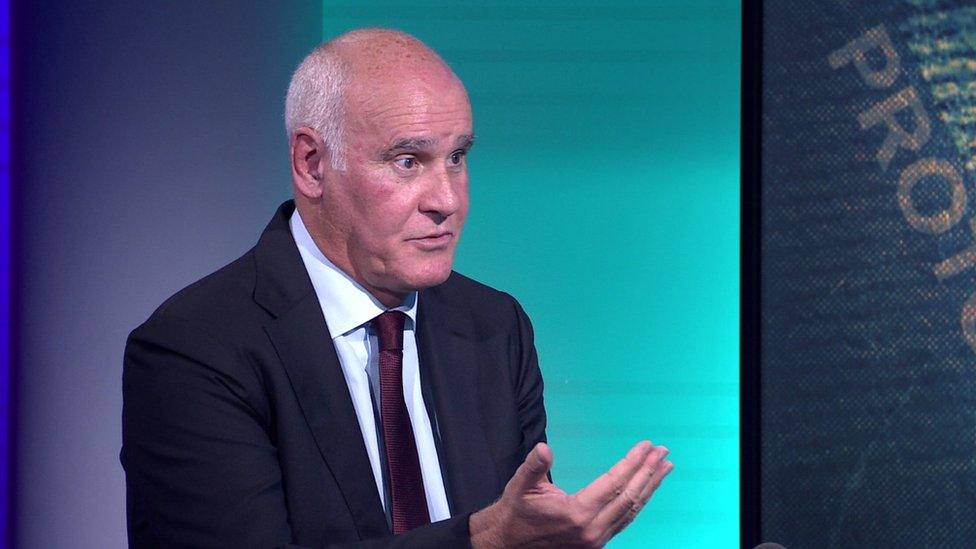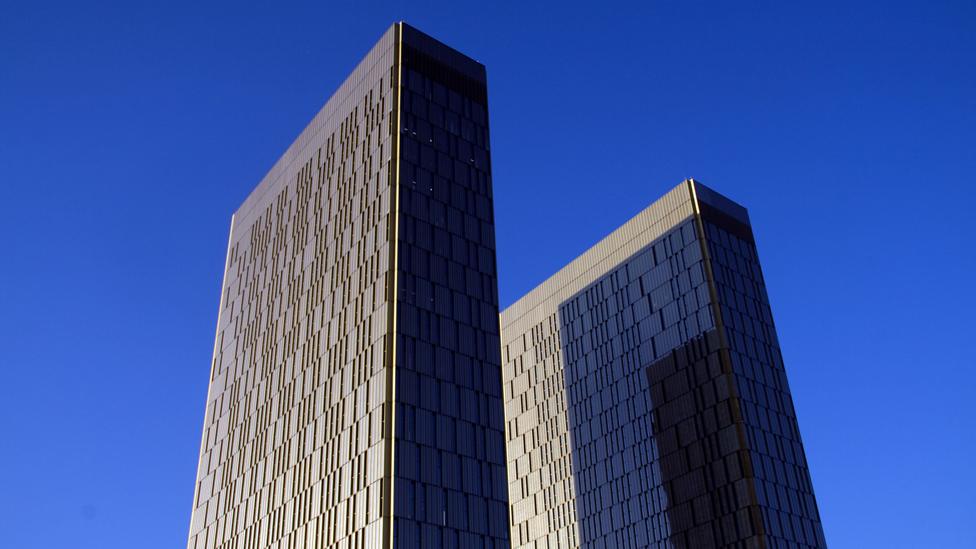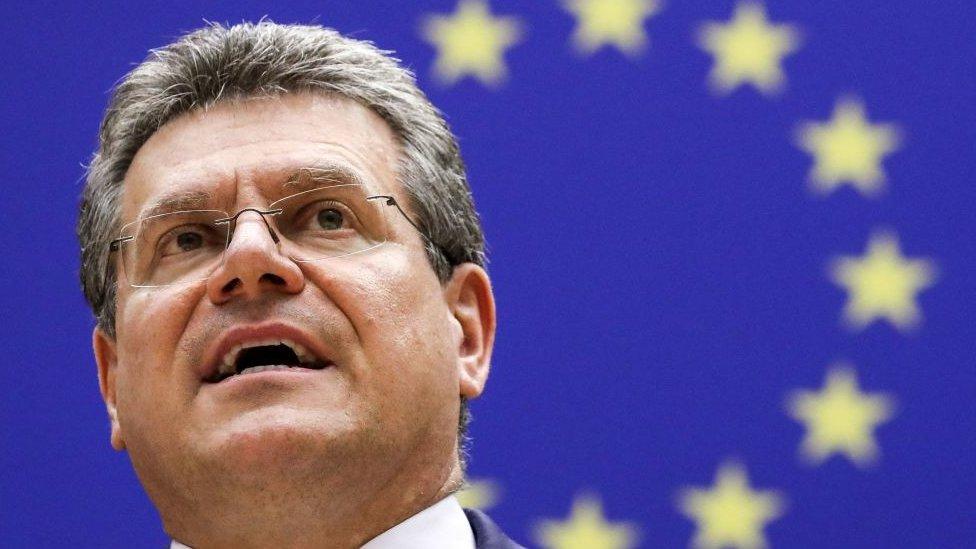Brexit: EU has gone extra mile with Northern Ireland offer - ambassador
- Published
- comments

Diplomat João Vale de Almeida was previously the EU's ambassador to the US and UN
The EU has gone the extra mile by offering a fix to the row about trade in Northern Ireland, a senior EU official has said.
João Vale de Almeida - who is the EU's ambassador to the UK - told the BBC the bloc's proposals were "unprecedented".
The EU has suggested changing part of the Brexit deal that specifically covers Northern Ireland. Both sides agree it has problems.
The UK and EU will now hold three weeks of talks to discuss the suggestions.
When the Brexit deal was agreed less than two years ago, the two sides signed up to the Northern Ireland Protocol - the part that aimed to stop checks along the border between Northern Ireland and the Republic of Ireland.
Instead, the trade checks take place when goods arrive into Northern Ireland from Great Britain.
But two years on, both sides admit there are problems with the protocol. The UK says the current arrangement imposes too many barriers, and the EU recognises it has caused problems for businesses in Northern Ireland.
Their suggested solutions differ, however, with the UK wanting a completely new protocol, while the EU wants to adapt the current one.
Watch the lorry journey from England to NI
On Wednesday, the EU published its plan of how the protocol could be amended - cutting the number of spot checks by 80% and also halving the amount of customs paperwork.
Speaking to BBC Two's Newsnight, Mr Vale de Almeida, who became the ambassador to the UK last year, said: "What we have presented in Brussels today is unprecedented. And I have been working for the EU for almost 40 years now.
"What we have done today goes very far. We went the extra mile to address the problems that were created by Brexit in Northern Ireland, which the protocol tries to mitigate."
He insisted that the EU's suggestions did not represent it giving way to the UK government. "These are not concessions, these are proposals that we make out of our own initiative," he said.
"Why should they be concessions? We're not forced to propose this, we proposed this because we realised that there are problems in Northern Ireland and we care about Northern Ireland, we want the protocol to work."
"We are not renegotiating the protocol, we are adapting the protocol," he said.
After the EU set out its plans on Wednesday, the UK said it would study the detail and the next step should involve rapid and intensive talks to see if a solution could be found.
But disagreements could still remain, including over the role of the European Court of Justice - the EU's highest court - in Northern Ireland.
Both sides previously agreed that the ECJ can police matters of EU law in Northern Ireland, as Northern Ireland will be staying in the EU's single market for goods. So, for example if there was a dispute around complying with applicable EU law, the EU could take the UK to the ECJ.
But the UK's Brexit minister Lord Frost previously said he wants the ECJ's role to be removed.
Mr Vale de Almeida said the EU had gone to the limits of what it could offer.
Asked about the ECJ issue on Newsnight, Mr Vale de Almeida - who is Portuguese - said: "There is no single market without the European Court of Justice.
"It's the referee of the single market.
"So if Northern Ireland wants to have access to single market for goods... and at same time have access to the British market, it's a unique position in the world... there has to be a European Court of Justice. One does not go without the other."
Talks between the EU and UK on the new proposals are now likely to go on for several weeks.

NI Protocol: The basics
The Northern Ireland Protocol is part of the Brexit deal: It is an agreement that means goods can pass freely across the Irish border. Basically, lorries don't have to stop and prove their goods follow EU rules when they go between Northern Ireland (in the UK) and the Republic of Ireland (in the EU).
It means Northern Ireland still follows some EU rules: As the rest of the UK (England, Scotland, Wales) no longer follow EU trade rules, some goods from there have to be checked when they arrive in Northern Ireland.
But some goods from Britain can't enter Northern Ireland at all: EU rules don't allow certain products, like chilled sausages, to enter its market. A grace period, where the rules don't apply, has been in place since January but no long-term solution has been found.
Read more: The Northern Ireland Protocol explained


THE READER: A clandestine love affair leads to guilt and betrayal
SEX AND RELATIONSHIPS: How cultural attitudes can shape a marriage

- Published27 February 2023

- Published2 February 2024

- Published13 October 2021
- Published13 October 2021
